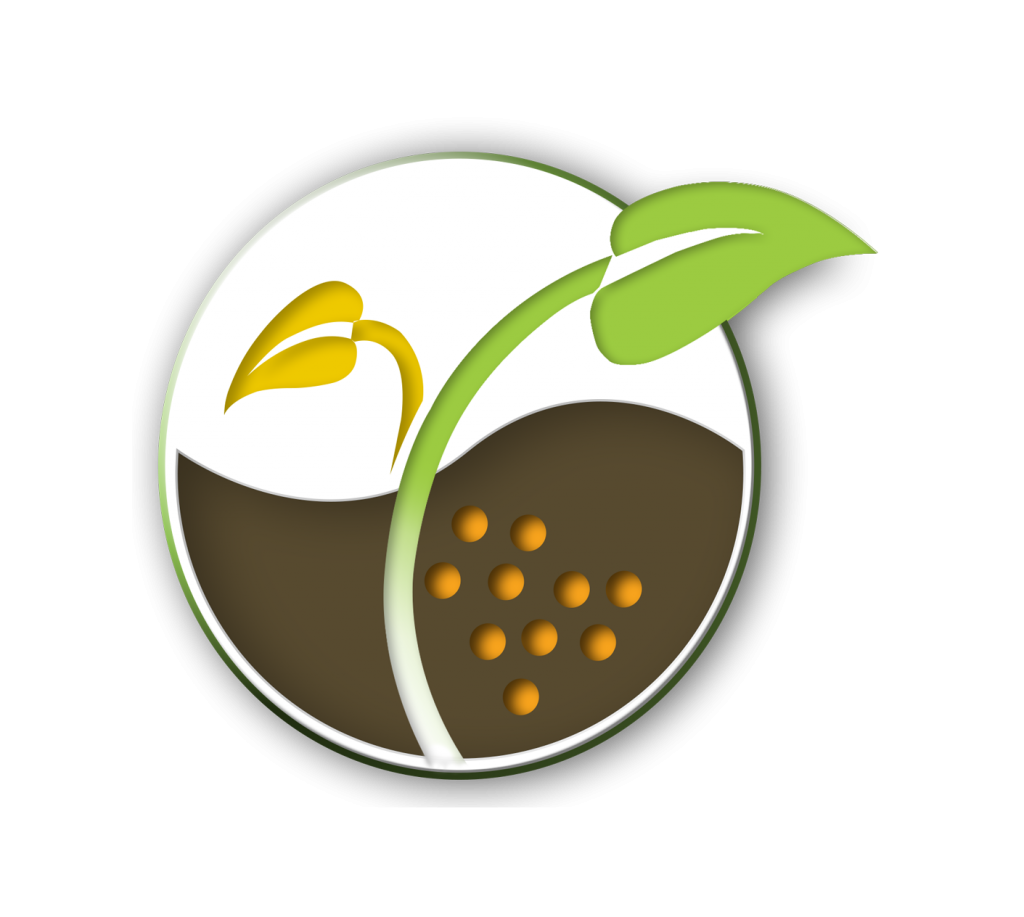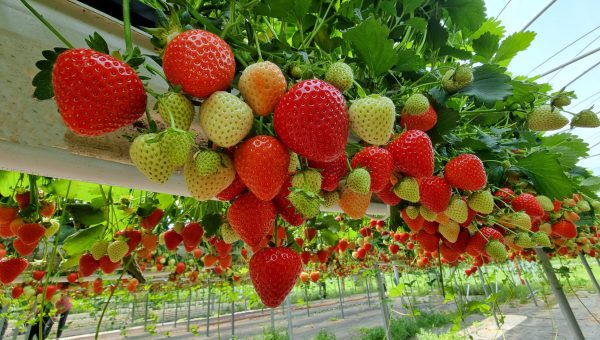The importance of using registered products
What does a phytosanitary registration bring to a biological product?
In an industry increasingly focused on sustainability and food safety, phytosanitary registration is not just a legal requirement: it is a guarantee. This comprehensive process certifies that an agricultural input is safe for people, crops and the environment, and that it works under real field conditions.
In this article we explore why phytosanitary registration is key in the development of biological control agents, using as an example our products based on Trichoderma asperellum T34, T34 Biocontrol® and RootDei Biocontrol®. We will see how a product goes from being a promising strain in the laboratory to a reliable solution in the agricultural market, thanks to a rigorous technical, toxicological and environmental validation process.
👉 And most importantly, why using registered products is a safe and responsible investment for today’s farmer.
Important: This is the second part of our blog on the phytosanitary registration of biological products. In the first installment we analyzed the importance of efficacy and field trials; now we delve into the authorization of the active ingredient, its regulation at European level and its essential role in biological plant protection products.
1. What is phytosanitary registration and why is it important to use registered products?
Phytosanitary registration is the official process, evaluated by the European Food Safety Agency (EFSA), by which a chemical or biological crop protection product is authorized by the European Commission for marketing. This evaluation includes a rigorous analysis of its safety, efficacy and environmental performance, ensuring that the product is suitable for agricultural use without risk to human or animal health or biodiversity.
In the case of biological control agents, such as Trichoderma asperellum T34, the process is particularly demanding. These products must not only demonstrate their ability to control diseases effectively, but also their safety and compatibility with sustainable agricultural practices.
Using registered products is a strategic decision that brings multiple key benefits:
1. Health and environmental safety
The registered products have passed rigorous toxicological and ecotoxicological studies under Good Laboratory Practices (GLP), which guarantees their safety for humans, animals and agricultural ecosystems.


2. Proven efficacy in real conditions
Only products that demonstrate consistent results in field trials, conducted under Good Efficacy Practices (GEP) in different climates and crops, are approved. This gives growers confidence that the product will perform as expected.
3. Guaranteed quality
The registration requires that the products meet high quality standards in production and formulation: consistency between batches, storage stability and strict control of microbiological contaminants, ensuring safety in each application.


4. Crop protection
Prior to approval, registered products are evaluated to ensure that they do not harm the treated crop or adjacent or successive crops, promoting sustainable and profitable agricultural production.
5. Consumer confidence
Agricultural products obtained with registered inputs generate greater confidence among consumers and distribution chains, which are increasingly aware of the importance of food safety. Products such as T34 Biocontrol® and RootDei Biocontrol® also stand out for their Zero Residue status, a fundamental added value in today’s markets.


6. Promoting innovation and development
The registry encourages research and development of new biological solutions, providing legal protection that encourages companies to invest in advanced technologies and bring safer and more effective products to market.
7. Legal compliance and legal certainty
Using unregistered products can result in severe penalties, loss of quality certifications and trade restrictions. Using registered products ensures compliance with current regulations and protects the viability of the agricultural business.


8. Suitable for organic production
Some registered biological products, such as T34 Biocontrol® and RootDei Biocontrol®, also meet the requirements to be authorized as inputs for organic farming, reinforcing their value in sustainable and premium market-oriented production systems.

Registered vs. unregistered products: what are the differences?
The choice between a registered and an unregistered product is not trivial. It involves important differences in safety, efficacy, legality and sustainability of agricultural production. This table summarizes the main differences:
| Appearance | Registered Product | Product Not Registered |
|---|---|---|
| Safety studies | Has passed toxicological and ecotoxicological studies under GLP, validated by competent authorities. | No guarantees; it has not passed official environmental or human safety controls. |
| Efficacy trials | Validated under Good Efficacy Practices (GEP) in different crops and conditions. | Not proven in official trials or data limited to non-standardized tests. |
| Quality control | Controlled industrial production; stability, microbial contamination and purity analysis. | Variable quality; risk of contamination or loss of efficacy during storage. |
| Legal compliance | Authorized for sale and application according to national and international regulations. | Illegal in many countries; risk of fines, loss of certifications or seizures. |
| Environmental impact | Ensures low risk to non-target organisms and the environment. | Potential unknown negative effects on biodiversity and agricultural ecosystems. |
| Zero waste certified | Yes, certified; essential for markets requiring residue-free production. | Not guaranteed; may generate residues not acceptable for organic production or export. |
| Reputation in the market | High prestige and supports the confidence of distributors, technicians and consumers. | Low confidence; export markets often require registered products. |
| Innovation and scientific support | Based on scientific research supported by publications and collaborations with research centers. | Without solid scientific support or public evidence of performance. |
Why is it crucial not to confuse them?
A registered product offers all the necessary guarantees for its safe and effective use in agriculture. It has passed rigorous toxicological and ecotoxicological studies under GLP standards, has official efficacy tests according to Good Practices (GEP) and its industrial production follows strict quality controls that ensure stability, purity and absence of contamination. Furthermore, its use is fully authorized in accordance with national and international regulations, which guarantees its legality and the confidence of the markets, especially in exports. These products have a proven low environmental impact, are certified as zero waste and their development is supported by proven scientific research and collaborations with research centers, providing prestige and confidence to distributors, technicians and farmers.
On the other hand, an unregistered unregistered product lacks official controls, safety studies or standardized tests to guarantee its efficacy or safety. Its quality is variable, there is a high risk of contamination or loss of effectiveness, and its commercialization is usually illegal in many countries, exposing the user to sanctions and the loss of certifications. In addition, they can generate unacceptable residues and have unknown negative effects on the environment and crops, lacking the scientific backing necessary to guarantee their responsible and sustainable use.
2. The process of registering a plant protection product
Registering a phytosanitary product is a long and complex process, but essential to guarantee its safety, efficacy and quality. In the case of T34 Biocontrol® or RootDei Biocontrol®, the process has followed all the steps required to become biological solutions of reference in sustainable agriculture.
The main steps are detailed below:
Registration Process:
1
It all starts with the selection among hundreds of strains of microorganisms with potential for agricultural disease control. In our case, Trichoderma asperellum T34 was evaluated for its ability to combat plant pathogens in a natural and sustainable way.
2
Once the strain has been selected, the next challenge is to scale up its production to obtain an efficient and stable product.
3
Before applying for registration, it is necessary to carry out a battery of studies under international standards.
- Physicochemicals.
- Effectiveness.
- Waste.
- Toxicity and ecotoxicology.
- Environmental performance.
All these studies must be performed under Good Laboratory Practices (GLP) and Good Efficacy Practices (GEP), guaranteeing reliable results.
4
After passing the review by the competent authorities, the sales authorization is granted, allowing the product to be marketed in the corresponding country.
5
To bring products to market efficiently, T34 Biocontrol® and RootDei Biocontrol® are distributed through established commercial networks, optimizing resources and ensuring fast and effective delivery to the farmer.
3. Time: how long does it take to register a biological product?
The registration of a biological plant protection product not only implies complying with a series of scientific and regulatory requirements, but also a significant investment of time and economic resources. Although biologicals have a lower risk profile than chemical products, the validation process is still rigorous and exhaustive, a process with the same guarantees and exactly the same as the registration of a synthetic or chemical plant protection product.
How long does it take to register a biological?
The time required to register a biological product may vary depending on the country and the complexity of the dossier, but in general, the time required is long:
- In Europe, under Regulation (EC) 1107/2009, the entire process can take between 8 and 10 years.
- In the United States, registration can take 3 to 5 years.
Why is this investment worthwhile?
Although the cost and time of registration are high, obtaining a phytosanitary authorization is a strategic advantage:
LEGAL and SAFE

A registration allows the product to be marketed legally and safely in demanding markets.
TRUSTED

An authorized product generates confidence among distributors, agricultural advisors and farmers.
ECOLOGICAL

Facilitates access to organic farming and large retail chains.
INTERNATIONAL

It is essential for international expansion and scientific recognition.
In the case of Biocontrol Technologies, the investment made to register Trichoderma asperellum T34 has made it possible to offer the market an approved, effective and safe product, consolidating its position as a reference tool in sustainable biological control.
How does the registration of biologics evolve with the new European legislation (SUR)?
The European Union is redefining the future of crop protection with the proposed new regulation known as SUR(Sustainable Use Regulation), which will replace the current Directive 2009/128/EC. This new regulation is part of the Farm to Fork Strategy, one of the pillars of the European Green Pact, which seeks to transform the European food system into a more sustainable, safe and environmentally friendly one.
What is SUR?
SUR Regulation: The Sustainable Use of Plant Protection Products (SUR) Regulation is a European Union regulation that aims to ensure that the use of plant protection products is carried out in a responsible manner, minimizing risks to human and animal health and the environment.
This regulation establishes concrete measures to reduce the use and risk of chemical pesticides, encourage the adoption of sustainable alternatives, such as biocontrol products, and promote integrated pest management. The SUR is part of the European Green Pact and the Farm to Fork Strategy, which seek a more sustainable, safer and biodiversity-friendly agriculture.
SUR Briefing PDF
https://www.europarl.europa.eu/RegData/etudes/BRIE/2022/739218/EPRS_BRI(2022)739218_EN.pdf
The Sustainable Use of Plant Protection Products (SUR) Regulation aims to:
1
Reduce the use of chemical plant protection products by 50% by 2030.
2
Promote the use of sustainable alternatives such as biocontrol products.
3
Establish integrated pest management (IPM) practices as mandatory.
4
Promote the use of biological control agents (biopesticides) as a first option in crop protection strategies.

In this context, organic products play a key role in achieving these objectives, as they offer pest and disease control with less environmental impact and greater safety for consumers.
What does this mean for companies that market biological inputs such as T34 Biocontrol® and RootDei Biocontrol®?
For Biocontrol Technologies and biological solutions such as T34 Biocontrol® and RootDei Biocontrol®, the SUR represents an opportunity to:
INTERNATIONAL

It allows to accelerate the international expansion thanks to the homologation of the European authorization in other countries.
IPM

Encourage the adoption of integrated pest and crop disease management (IPM) strategies.
SUSTAINABILITY

Align with the sustainability and waste reduction requirements of the main agricultural markets.
The evolution of the registry is an essential step to continue moving towards a more efficient, safe and sustainable agriculture, where new generation biologics are the protagonists.
5. Registered products, a guarantee for sustainable agriculture
The phytosanitary registration process is much more than a formality: it is a guarantee that the product has been evaluated with the highest standards of safety, efficacy and sustainability. To bet on registered products is to protect the health of the farmer, the consumer and the environment, while ensuring the profitability of the crops.
At Biocontrol Technologies, our commitment is to offer biological solutions such as T34 Biocontrol® and RootDei Biocontrol®, which combine efficacy, safety and respect for the environment. Thanks to a rigorous research, development and registration process, we provide farmers with reliable tools to move towards a more sustainable and responsible agriculture.
Want to know more about our registered solutions?
Contact us and find out how we can help you protect your crops in a safe, efficient and sustainable way.





